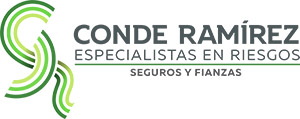Catastrophe Bond Market Breaks New Records in 2nd Quarter, 1st Half: Aon Study
Catastrophe bond issuance during the second quarter stood at US$6.38 billion across 20 transactions – a new record for quarterly issuance that surpassed the previous record of US$4.49 billion set in Q2 2014, according to a report issued by Aon Securities, the investment banking division of Aon Benfield.
When added to the Q1 2017 issuance total of US$2.17 billion, the first half 2017 issuance total of US$8.55 billion represented a historical high – not only for any first half on record but also any annual period on record, said the report titled “Insurance-Linked Securities – Q2 2017 Update.”
The previous record annual issuance was set in 2007 at US$8.38 billion, said the report which analyzes activity in the insurance linked securities (ILS) sector.
Further, the report added, when the second quarter closed on June 30, 2017, more catastrophe bonds were on-risk than ever before, with US$26.12 billion outstanding in the market.
“Strong investor demand meant that many bonds issued in Q2 were upsized from initial guidance, with Kilimanjaro II Re upsizing by more than 100 percent to US$1.25 billion, making it the largest issuance of the quarter, and the third largest catastrophe bond in history,” said the report.
In addition, six different public entities came to market during the Q2 period, with a total of US$2.2 billion of catastrophe bond issuances, Aon Securities affirmed.
According to FINRA’s Trade Reporting and Compliance Engine (TRACE), there were 231 secondary market trades totaling US$236.4 million during Q2 2017 – an increase in trade volume of 6 percent from Q2 2016, while the dollar volume of reported trades decreased by 4 percent from Q2 2016.
“During the second quarter, we saw a large amount of maturing limit being renewed, which contributed to the record-breaking issuance figures,” said Paul Schultz, chief executive officer of Aon Securities.
“However, there was still a significant expansion in the overall market, as a result of new sponsors, favorable pricing, and the ability of alternative capital to provide high levels of market capacity,” he continued.
 Fianzas y Seguros CRYA
Fianzas y Seguros CRYA
